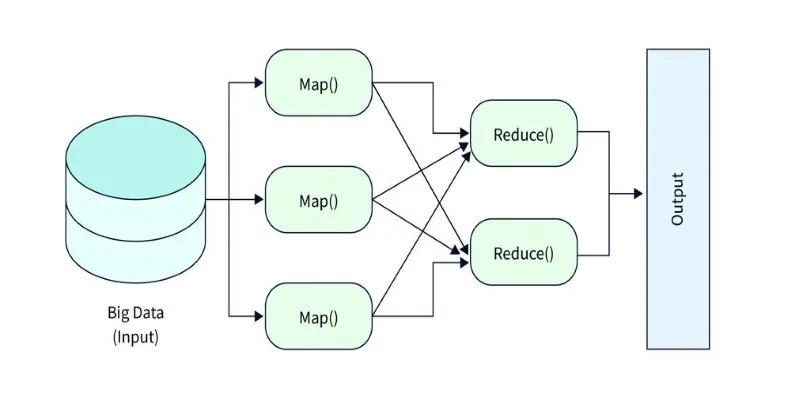Product management has traditionally involved balancing customer needs, market trends, and technological capabilities. However, with the rapid advancement of artificial intelligence (AI), the landscape is evolving. AI in product management is not just a buzzword—it is fundamentally transforming how products are conceptualized, developed, and delivered.
In this article, we explore how AI is reshaping the product management landscape. Readers will gain insights into AI’s potential to streamline and enhance decision-making processes, ultimately helping to build superior products. With AI, product managers can adopt more informed, efficient, and forward-looking strategies, leading to greater market success.
AI’s Role in Product Development
AI has revolutionized product management by allowing product managers to extract and analyze vast amounts of data in a short time. Previously, managers relied on manual surveys, focus groups, and customer feedback to understand user needs and market dynamics. These methods, while valuable, are time- consuming and susceptible to human error. AI automates these tasks, providing actionable insights from data related to user behavior, feedback trends, and competitor analysis.
Predictive analytics is a key area where AI impacts product management. By applying machine learning algorithms to historical data, AI can anticipate emerging customer needs, forecast market changes, and predict potential product issues before they arise. This proactive approach enables product managers to set the agenda rather than react to developments. Additionally, AI can gauge customer sentiment through review analysis and social media mentions, allowing product managers to make more informed decisions. Transitioning from intuition-based to data-driven decision-making aligns strategies with consumer expectations, resulting in innovative products that resonate with the market.
Streamlining Product Management Tasks
AI significantly reduces product managers’ workloads by automating repetitive tasks. Traditionally, data entry, report compilation, and market analysis were necessary yet tedious tasks that consumed much of a manager’s time. With AI- powered tools, these tasks are now completed swiftly and accurately, freeing up time for strategic thinking, customer engagement, and product innovation.

Beyond administrative duties, AI enhances the overall product development process. AI-driven tools assist with planning product roadmaps, optimizing design, and testing phases. For instance, AI algorithms can simulate real- world scenarios and test product performance under different conditions, providing feedback on potential flaws before costly development begins. This iterative feedback allows teams to refine products earlier, reducing failure risk and speeding up time-to-market.
Moreover, AI identifies workflow inefficiencies, suggests process improvements, and prioritizes tasks based on urgency. Automating these critical yet mundane aspects of product management boosts efficiency and enhances decision-making and product delivery quality. Ultimately, AI allows product managers to focus on crafting innovative solutions for customer needs.
Enhancing Product Decisions with AI
Making the right product decisions is crucial for success, and AI plays a significant role in enhancing this process. By continually monitoring user interactions and analyzing behavioral patterns, AI provides product managers with real-time insights, highlighting areas for enhancement or innovation. Unlike traditional methods that rely heavily on intuition, AI tools offer data-driven guidance for more informed choices.
AI also supports dynamic pricing strategies. By analyzing customer preferences, purchasing trends, and market fluctuations, AI suggests optimal price points that balance competitiveness with customer expectations. This approach not only optimizes revenue but also improves customer satisfaction by aligning product value with market demand.
Additionally, AI enhances A/B testing by analyzing different product versions—features, design, or content—and delivering detailed performance reports. This helps product managers understand what resonates with users and iterate quickly based on evidence. Quick adjustments ensure products remain relevant and appealing in fast-changing markets. Overall, AI transforms product decision-making into a proactive, strategic approach that minimizes guesswork and maximizes outcomes.
Improving Collaboration and Efficiency
AI enhances efficiency not only for individual product managers but also for entire product teams. Product development often involves collaboration across various departments, from design to engineering to marketing. AI streamlines these interactions by facilitating communication and ensuring all team members are aligned.

AI-powered collaboration tools track project progress, ensuring deadlines are met and identifying workflow bottlenecks. These tools also suggest product changes based on input from different departments, ensuring all expertise is considered. With AI assisting in the background, product teams work more efficiently, reducing delays and improving the development timeline.
Furthermore, AI helps identify the right talent for specific tasks by analyzing team members’ past work and suggesting optimal assignments based on skills and experience. This ensures the right people work on the right aspects of the product, enhancing the efficiency and quality of product development.
Conclusion
Utilizing AI in product management is no longer a luxury—it is essential for staying competitive in today’s fast-paced market. AI tools streamline processes, improve decision-making, and enhance team collaboration. As AI technology continues to evolve, opportunities for product managers to leverage AI for better product development will only grow. By embracing AI, product managers can lead the way in creating innovative, successful products.
 zfn9
zfn9





















